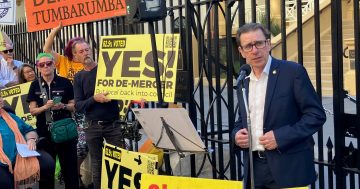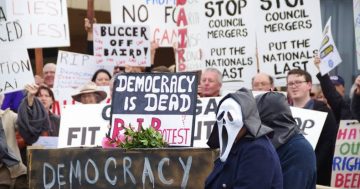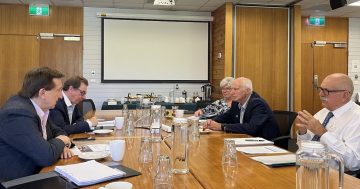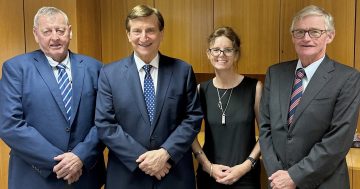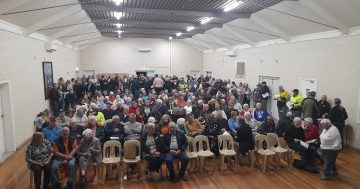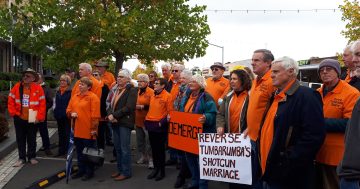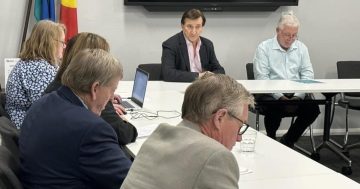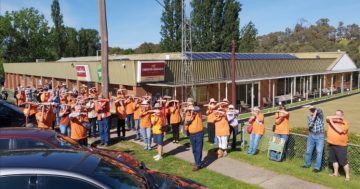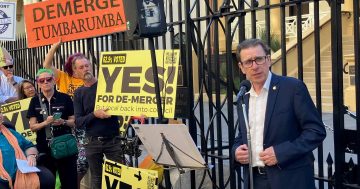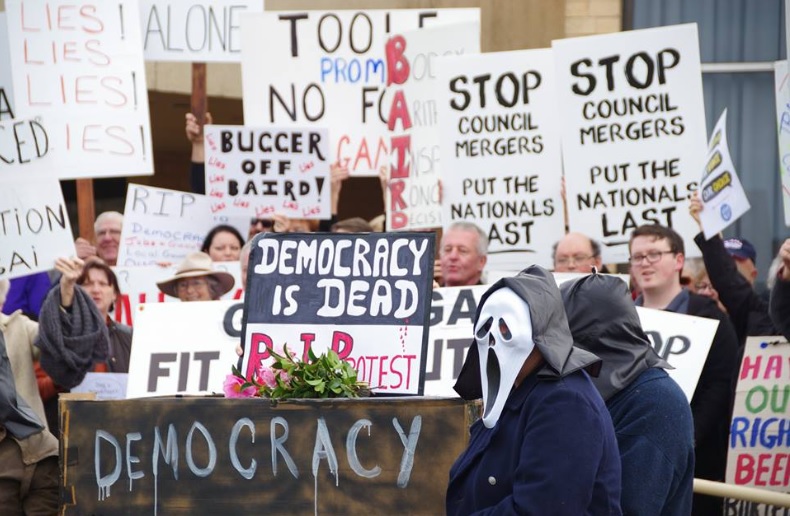
The Coalition government’s forced council amalgamations sparked statewide protests. Photo: Supplied.
Independent Member for Wagga Wagga Dr Joe McGirr has told the NSW Government they must pick up the tab to reverse forced regional council amalgamations.
A new bill introduced into the NSW Parliament on Tuesday (6 Feb) aims to make it easier for local councils to de-merge but there is no cash promised to help them do it.
“I was disappointed with the bill which doesn’t require the government to provide support – financial and otherwise – for the de-merger process for rural councils,” he said.
“At the end of the day, the government admits that the previous decision was ‘a failed and expensive experiment’ and quite rightly acknowledges the costs local communities have had to bear.
“This bill doesn’t rule out support, but it doesn’t actually require it either, and that’s disappointing.”
The amalgamation process began in 2016 under the former Coalition government in a controversial attempt to save ratepayers money by forming 19 new councils through forced mergers.
The policy sparked protests across the country and disparate regional communities like Cootamundra and Gundagai were forced into uncomfortable and often fractious unions.
The new bill removes a “legally flawed section” of the Local Government Act and Minister for Local Government Ron Hoenig said it would be replaced with “a clear and democratic process.”.
“While the NSW Government strongly supports a clear process for councils and communities to exercise their democratic right to pursue de-amalgamation, we also have to be realistic about some of the challenges this brings,” Mr Hoenig said.
“It’s why one of my main priorities as Local Government Minister has been to find a way to remove the roadblocks posed by the existing demerger process and give communities the opportunity to decide.”
The new bill outlines the steps councils will need to take and requires a comprehensive business case and strategic plan that includes an estimate of their ability to fund de-amalgamation.
“It’s essential that local democracy is enshrined in the decision-making process so that councils and communities are fully informed of the financial and other implications of de-amalgamation,” the Minister said.
“The amendments we have introduced are more pragmatic than other legislative proposals being put to parliament and ensure de-mergers can be effectively managed by councils and that any new councils are financially sustainable.”
Member for Cootamundra Steph Cooke was cautious in acknowledging the bill, asserting that “the circumstances surrounding the de-amalgamation of the Cootamundra-Gundagai Regional Council (CGRC) are certainly unique.”
She said she would “go through the bill with a fine-tooth comb to better understand its implications for the CGRC” and agreed a lack of funding was problematic.
“My biggest concern continues to be around the cost of the de-merge, along with achieving a timely resolution for the sake of those impacted by the ongoing uncertainty surrounding the de-merger process.”
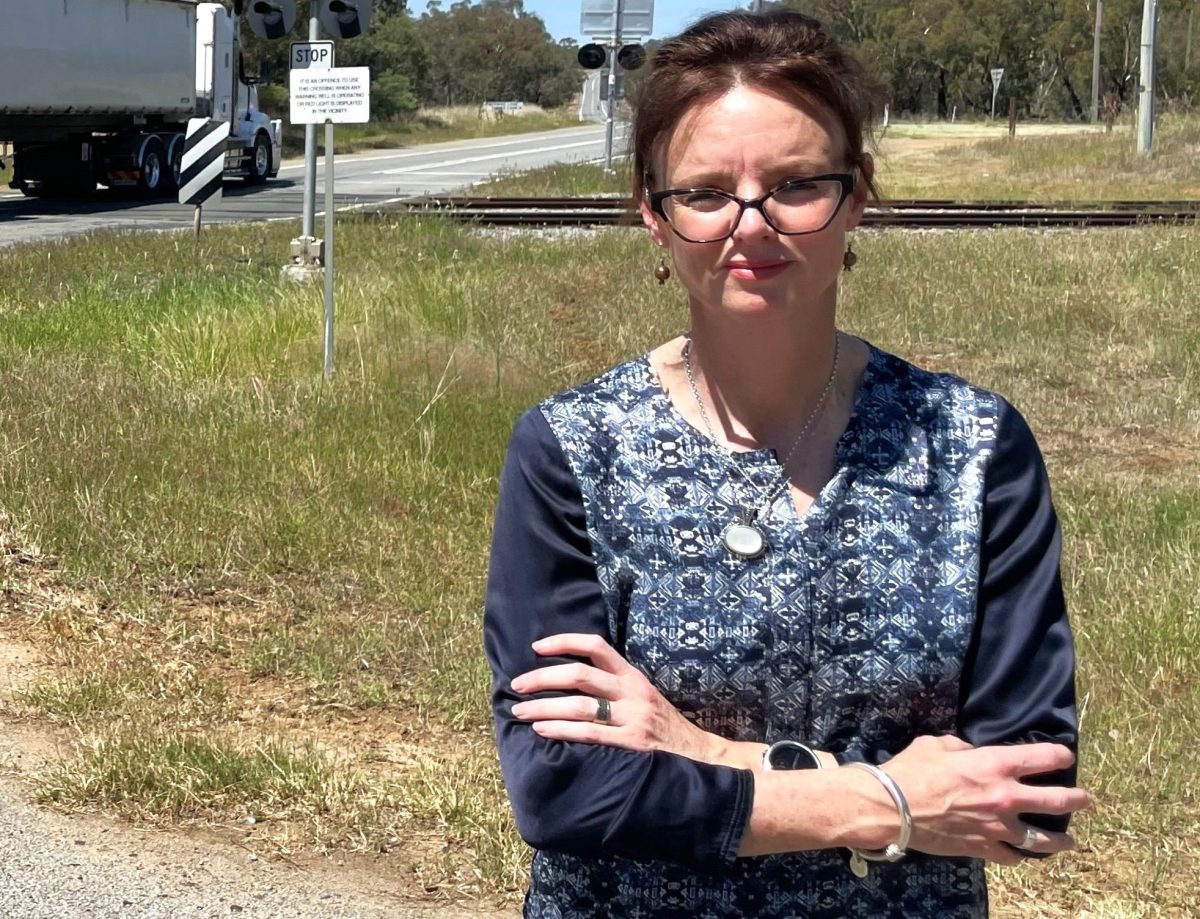
Member for Cootamundra Steph Cooke has promised to go through the de-merger bill ‘with a fine-tooth comb’. Photo: Steph Cooke.
Dr McGirr said it was simply not realistic to ask regional councils to foot the bill.
“Nineteen out of the 20 merged councils are in financial strife and here we have the government putting the onus back on the councils,” he said.
“I’m not saying the council shouldn’t have skin in the game. They clearly need to lead the process and the local community needs to buy into it.
“But to suggest that rural and regional councils have the support within their current establishments in terms of expertise and of finances – that’s not right.”
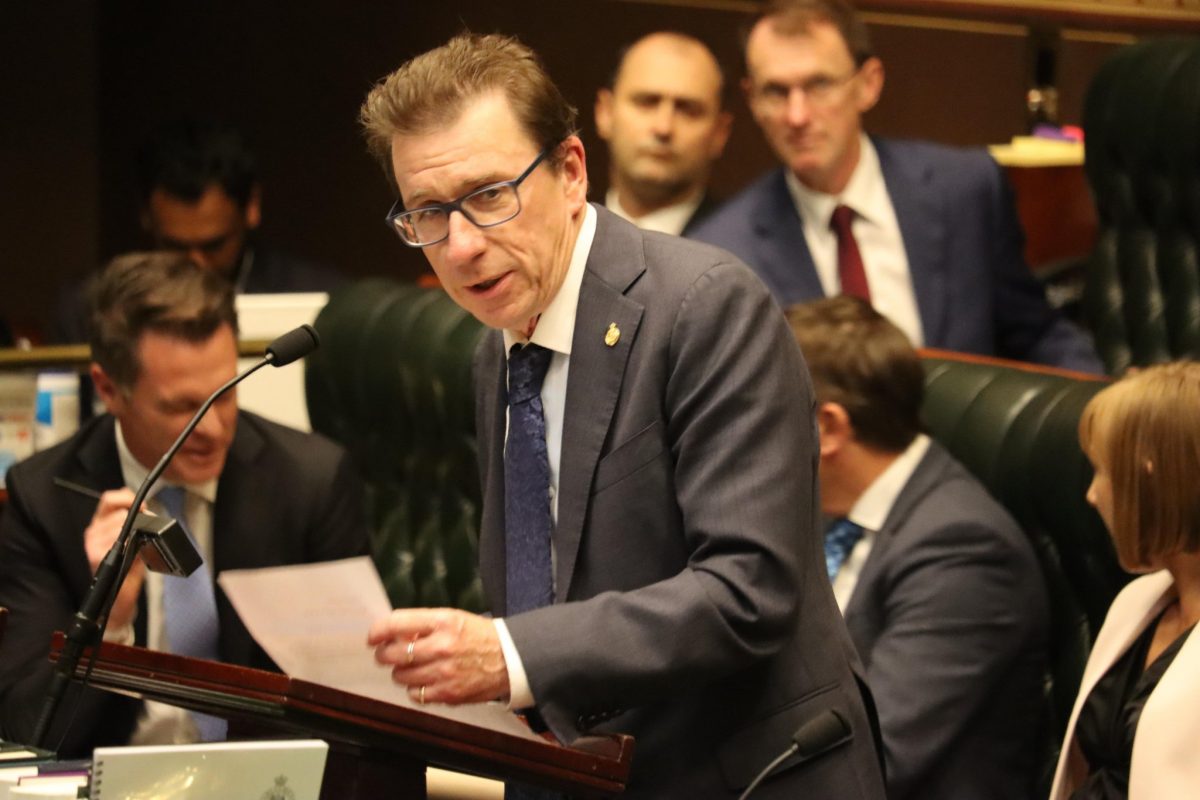
Wagga’s Independent MP Dr Joe McGirr says the NSW Government should fund council demergers. Photo: NSW Parliament.
Once a business case is put forward by councils, the NSW Local Government Boundaries Commission will carry out an independent review.
Extensive community consultation will be required along with a constitutional referendum with a compulsory vote, which would require majority support for de-amalgamation to proceed.
It’s estimated the cost of untangling the larger mega-councils in Sydney could cost as much as $150 million each, while regional communities could also be up for millions.
“There clearly will be costs associated with a whole range of procedures involved in unpicking the governance between the two councils,” said Dr McGirr.
“Everything from assets to reconfiguring the IT systems and payroll.
“There’s also the requirement for councils to have a plebiscite or a referendum and to ask them to fund that when they did not ask for this decision originally is just not right.”







